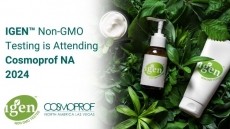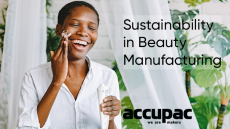Lush develops palm oil-free soap base
ethically sourced personal care products, Lush has teamed up with a
small soap specialist in the UK to develop what is
claimed to be the world's first palm oil-free soap base.
Kay's is a small Lancashire-based company specialising in the development of soaps and claims have produced the world's first vegetarian formula soap back in 1970.
Lush turned to the family-run business to come up with an alternative to palm oil-based soaps as a response to growing concerns over the environmental damage caused to rainforests by the creation of palm tree plantations in Indonesia and Malaysia.
The soap base developed by Kay's is a natural formula created using sunflower, rapeseed and coconut oil.
The company explains that the rapeseed and sunflower oils are readily available and sustainable products that are harvested in Europe, while the coconut oil is sourced from sustainable plantations in Indonesia.
The formulation took several months to develop, and Lush is now in the process of re-formulating all of its soaps to be made with the new base.
Lush estimates that it uses 250,000kgs of palm oil a year, which is mainly used in the base formulation for its many natural-based soaps that it markets in self-named retail outlets in 35 countries throughout the world.
The company's move into palm oil-free soap formulations comes as consumer demand mounts for personal care products that are deemed to be ethical.
This kind of factor is particularly important to companies such as Lush, which market their products on the strength of natural ingredients and a wholesome, clean image.
Only last month a report published by environmental campaigner Greenpeace pointed the finger at large global personal care players such as Procter & Gamble and Unilever, implicated them in the environmental damage related to the farming of palm oil for soap-based products.
Palm oil is used in a wide range of personal care products including soaps, shampoos and deodorants as well as foods and bio-fuels.
It has become an increasingly popular personal care ingredient, present in 497 products launched globally in 2007 compared to 246 last year, according to market research firm Mintel.
To satisfy the growing demand for palm oil, corporations in Indonesia are burning forests and draining peat lands to create oil plantations, said Greenpeace.












